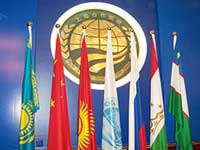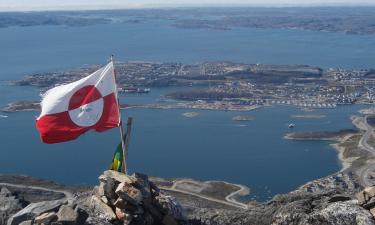Shanghai Cooperation Organization To Accept Two Nuclear Enemies
The Shanghai Cooperation Organization is holding the second day of its annual summit in the city of Tashkent, the capital of Uzbekistan (a former Soviet republic), on June 11. In addition to the traditional agenda – the questions of the economic, investment cooperation and security – the members of the summit will discuss the situations in Afghanistan and Kyrgyzstan.

The list of the members of the organization, which currently consists of five former Soviet republics and China, may expand in the nearest future. It has been reported recently that Pakistan (150 million-strong population) and India (billion-strong) are willing to join the SCO. It sounds intriguing because both Pakistan and India are nuclear states. More importantly, the relations between these two countries have been intense for years – they often stand on the brink of war with each other.
Russia Today: Russia discusses security and war on drugs with Shanghai partners
If Pakistan and India join the SCO, the organization will become a structure incorporating most populated areas of the world – China and India - as well as the largest state in the world – Russia. This may give the organization a new chance to participate in international decision-making procedures.
Iran was also seeking the SCO membership. However, it became clear June 10 that it will not be allowed to receive it. Mahmoud Ahmadinejad is angry with Russia and China for their support of new sanctions against his nation. In addition, Russia and China insist that a sanctioned state does not have a right to join the SCO.
The Shanghai Cooperation Organization incorporates Russia, China, Kazakhstan, Kyrgyzstan, Tajikistan and Uzbekistan. Four other countries – Iran, Pakistan, India and Mongolia – act as observers. Belarus and Sri Lanka obtained the dialogue status at the end of April.
The organization originally appeared as a group of five states on June 15, 2001. The heads of five states gathered in China’s largest city to set up a regional organization to struggle against terrorism, separatism and extremist – the so-called three forces of evil. Uzbekistan joined the group the following year. The Charter of the organization was signed in June 2002 in St. Petersburg.
In 2006, the SCO said that struggling against international drug mafia as the financial support of terrorism would be one of its top priorities. In 2008, the organization announced its active participation in the solution of the Afghan problems.
That is why it is absolutely clear that the current meeting of the organization is devoted to the struggle against terrorism, extremism, organized crime and drug trafficking.
Special attention to the transnational trafficking of drugs from Afghanistan is very easy to understand. It is the basic source of instability, extremism, organized crime and terrorism in Uzbekistan’s Fergana Valley, in China’s Xinjiang Uyghur Autonomous Region, in the Caucasus and Kosovo.
Vladimir Putin said during his speech at the recent security summit in Turkey that the problem of production and trafficking of Afghan drugs developed from a regional problem into a highly relevant matter of international scale.
“Terrorist activities in the Northern Caucuses are based on the profit received from the sale of Afghan drugs. Kosovo has become a supplier of Afghan opiate drugs to European markets,” Viktor Ivanov, the head of the federal service against drug trafficking said.
As for the situation in Kyrgyzstan, a member of the SCO, officials said that the nation would remain a full-fledged member of the organization despite the complicated political situation in the country.
The members of the summit will also approve regulations about the procedure to accept new members in the organization. The SCO currently takes the territory of three-fifths of the square of Eurasia (30 million km2). The citizens of SCO members represent a quarter of the planet’s population.
Ivan Tulyakov
Pravda.Ru
Subscribe to Pravda.Ru Telegram channel, Facebook, RSS!




